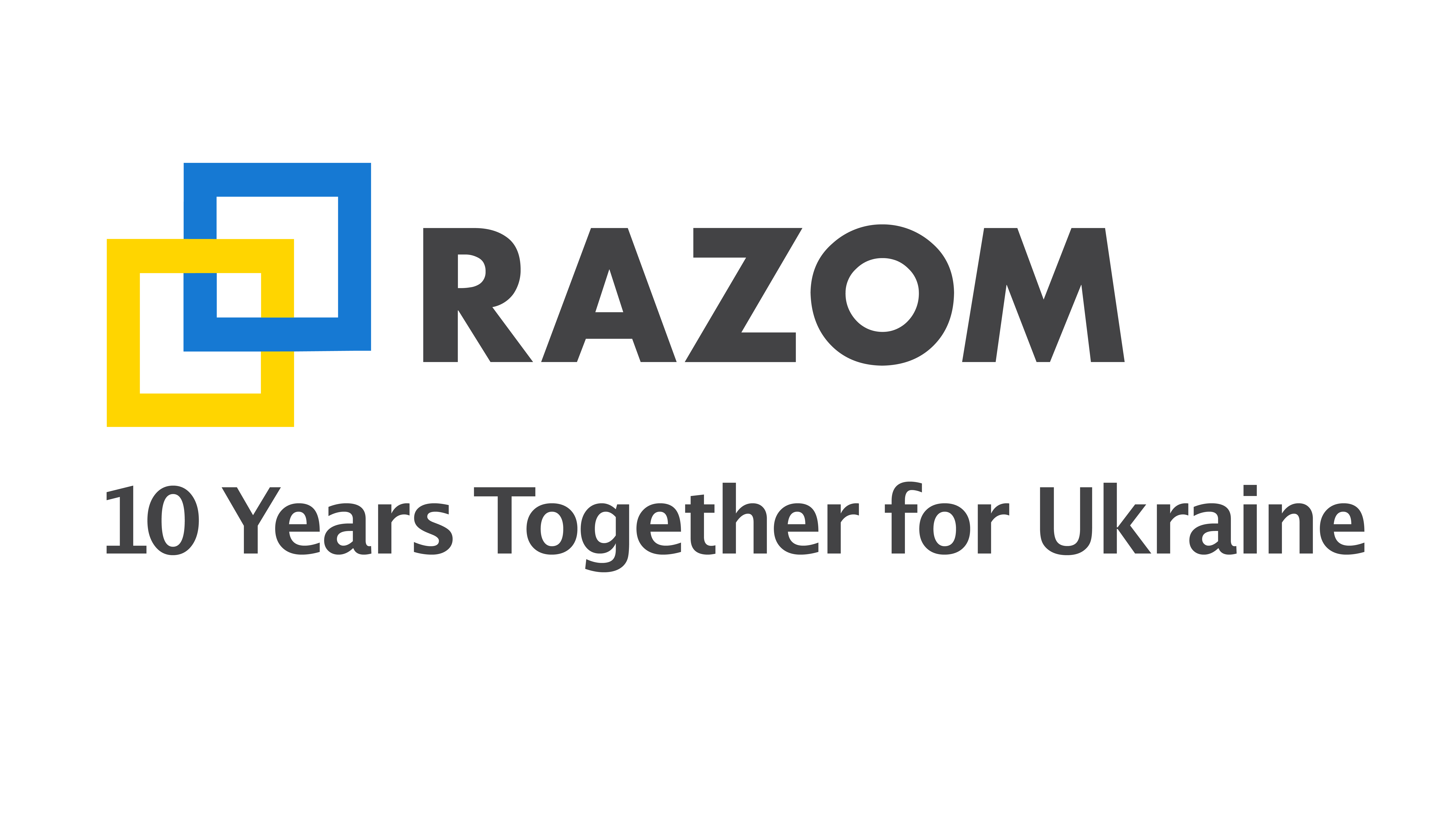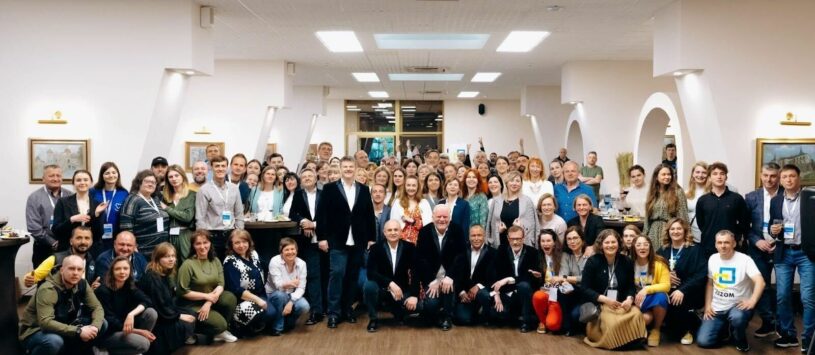We at Razom believe that the best results can be achieved when organizations work together. This is why we not only strive to provide grants to Ukrainian non-governmental organizations (NGOs) but also empower them by sharing best practices, collaborating, and learning from each other.
In May, Razom Relief traveled to Ukraine to be able to do exactly that. We organized a two-day meeting in Lviv for over 60 civil society organizations from across Ukraine to come together.
“The goal of the meeting was to have organizations get to know each other, share their experiences, and create organizational networks across regions,” Anna Solovei, the Director of Razom Relief program, said. “From the start, one of our aims was to build a community of civic organizations, which so far existed only in the common chat where we invite all our grantees.”
During the meeting, partners had a chance to learn nonprofit management best practices from fellow Razom grantees.
Kateryna Lutsyk represented NGO “Zakhyst” from Khmelnystkyi — the organization opened a social space that offers comprehensive support to internally displaced people, including psychological and legal help, housing assistance, and career development. Over the course of a year, the organization supported over 12,000 internally displaced people (IDP), and at the event, Kateryna shared the approaches that helped “Zakhyst” to be effective in their work.
Kateryna Terekhova of IT Troops shared how she used a small grant of less than $30,000 from Razom to efficiently restore an abandoned school into a shelter that can host up to 60 IDPs.
Our friends from Building Ukraine Together (BUR) shared with participants how they work with and engage their volunteers. From 2014 to 2022, the organization has engaged more than 6,000 young people to restore houses with a social purpose and, throughout 2023, hopes to engage 6,000 more volunteers to help rebuild Ukraine. The BUR team also discussed the organization’s brand development and social media strategy.
Nataliia Kidyba, a BUR representative, said that it was amazing to see a huge community of passionate people whom Razom supports.
Kidyba said that the meeting was structured in such a way as to allow each organization to reveal more about themselves so that they could find ways to support each other. During the events, BUR met some of the organizations it had helped previously and received a couple of proposals to work together in the future.
Our partners also participated in two working group events — one based on the organization’s geographic region and the other based on the sphere of work. By getting to know each other, discussing their challenges and solutions, and brainstorming ideas, our partners form networks in Ukraine that help them more efficiently support civilians during the war.

A visual representation of our participants’ feedback from the meeting
For many of our grantees, the meeting was inspiring and led to new ideas and connections. They enjoyed getting to know like-minded people in a cooperative environment.
Andrii Hrushevskyi from the NGO “Tepla Gora Foundation” said he was inspired by the event to increase the organization’s online presence, while Davyd Dzhalagonia from the charitable foundation “Help Group” said he learned how to interact with local government officials efficiently.
Vlad Samoilenko of “Hurkit” shared with Razom that during the event, he established many connections. The organization is able to help others with aid transportation and has agreed to provide humanitarian aid to another Razom grantee — International Development Center “Elpis”.
Several organizations that deliver help to front line areas created a separate chat to coordinate work and help each other.
These are just a few small stories from the meeting. Each connection or shared experience helps organizations become more efficient on the micro-level in their day-to-day operations — creating a big impact together. The results of this event became apparent in June after the destruction of the Kakhovka Dam. Our grantees were very effective in sharing information about the needs and coordinating aid deliveries.

